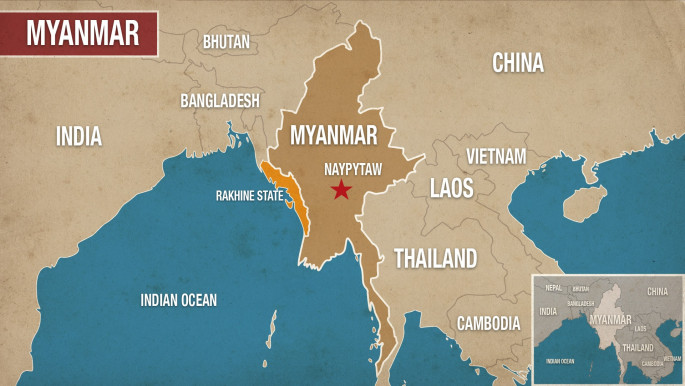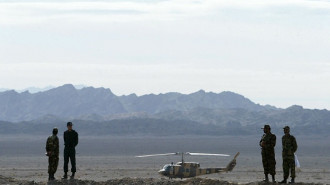Thousands of Muslims flee state violence in Myanmar again
Community leaders in Bangladesh told AFP that 3,500 people had arrived in the last month, sparking fears of a repeat of last year's widespread ethnic violence.
"In the Balukhali camp alone, some 3,000 Rohingya arrived from their villages in Rakhine," said Abdul Khaleq, a Rohingya leader.
The news came as a previous Director-General to the United Nations published a report on the situation in Myanmar's Muslim-majority Rakhine province.
"Violence will not bring lasting solutions to the acute problems that afflict Rakhine State," said Kofi Annan at a press conference to mark the report's release.
The report, which is considered important as the government has pledged to act on its findings, calls the situation in Rakhine a "human rights crisis".
 |
|
| Click to expand: Rakhine province (Myanmar) |
"The Muslims in Rakhine constitute the single biggest stateless community in the world," the report reads.
"Some ten percent of the world's stateless people live in Myanmar."
Government troops killed thousands of Muslims last October in revenge for the deaths of nine police officers, allegedly killed by Rohingya Muslim protesters. Tens of thousands of people fled their homes as a result of the violence.
There are an estimated 120,000 people who currently live in camps for Internally Displaced People (IDPs) in Rakhine state – most having been forced to flee state-sponsored violence in 2012.
A UN report described in February how the Burmese army and police used systematic violence, including rape and torture, against Muslim civilians.
Security had broken down in the state after a series of race riots between the province's Buddhists and Muslims escalated in 2012.
The UN's special rapporteur for Myanmar expressed concern over the rise in violence earlier this month.
"There have been increasing reports of incidents affecting the local population, including the killings of six Mro villagers on 3 August," said Yanghee Lee.

![Palestinians mourned the victims of an Israeli strike on Deir al-Balah [Getty]](/sites/default/files/styles/image_684x385/public/2024-11/GettyImages-2182362043.jpg?h=199d8c1f&itok=xSHZFbmc)


![The law could be enforced against teachers without prior notice [Getty]](/sites/default/files/styles/image_684x385/public/2178740715.jpeg?h=a5f2f23a&itok=hnqrCS4x)
 Follow the Middle East's top stories in English at The New Arab on Google News
Follow the Middle East's top stories in English at The New Arab on Google News
![Fakhrizadeh [AFP] Fakhrizadeh [AFP]](/sites/default/files/styles/image_330x185/public/media/images/774C39F7-8F7A-4D67-B998-27D102FCB4A7.png?h=d1cb525d&itok=j9eGvunV)

